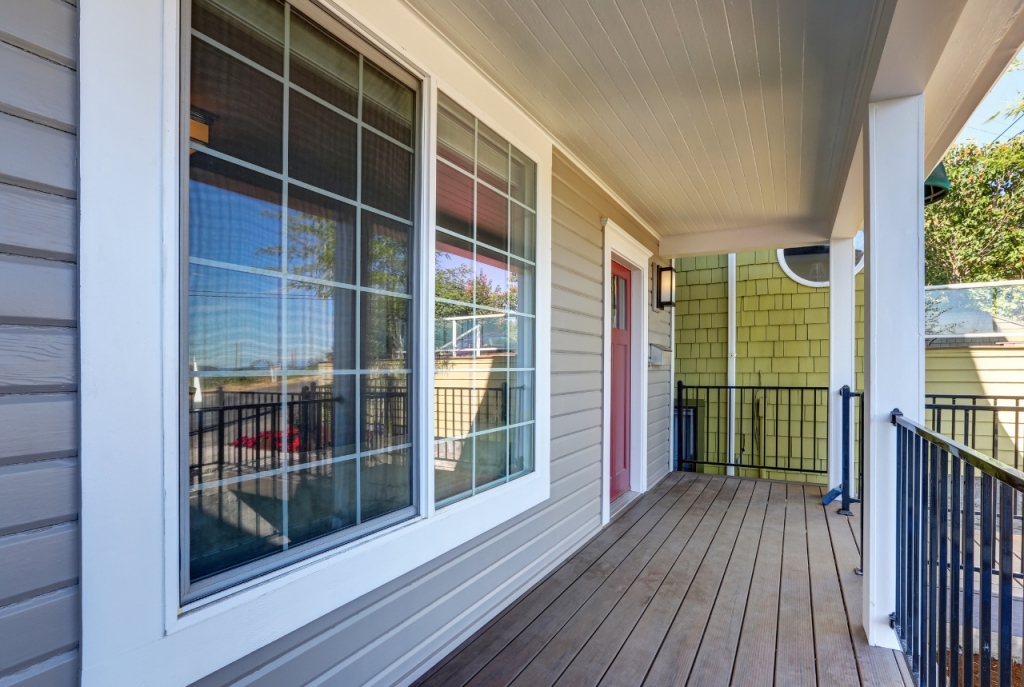9 Tips for Two Tone Kitchen Cabinets in a Small Kitchen
Two-tone kitchens are very popular right now, and it looks like they will be for quite a long time. Part of the reason for this is that the two-toned look has never really gone out of style. While other trends have come and gone, designers have always come back to dual tones and the striking contrasts that can be made with them. If you happen to have a smaller kitchen, not to worry! This doesn’t mean that the two-tone trend isn’t for you. Here are a few tips that will help you get the look in your kitchen.
1. Make Your Darker Color a Focal Point
In larger kitchens, the focal point is most often the island. However, smaller kitchens don’t always have space for an island, so to pull off the two-tone look, you’ll need to choose a focal point elsewhere in the space. In galley kitchens, for instance, this is usually the lower cabinets on the back wall, although you’re perfectly free to continue the two-toned theme throughout the kitchen by choosing a darker color for all lower cabinets.
2. What About Colors?
When it comes to colors, there are lots of options. The two-tone trend started with tuxedo kitchens, which are traditionally black on the bottom and white on top. But, that doesn’t necessarily mean you have to go with the black-and-white theme! Gray and white kitchens are common, as are kitchens in navy with cream cabinets. For a really bold look, try unusual colors, like dark plum or bright mango shades.
3. Two-Tone Schemes Don’t Need to Include Dark Colors
In small kitchens, where space is at a premium, the biggest goal is usually to make the kitchen feel bigger. Darker colors, because they absorb light, have the opposite effect. So if you want the two-toned look and you’d like to keep the kitchen feeling bright and roomy, consider pastels like soft blue or mint green paired with white.
4. Color Coordination is Key
When you’re mixing colors between upper and lower cabinets, it’s not enough to pick coordinating hues between cabinet colors. Wall colors and hardware are also key considerations if you want to tie the entire theme together. The biggest consideration here is the color family that you choose. For example, if your cabinetry is all in warm colors, then you’ll want to coordinate with appropriate wall colors—soft cream or other warm, off-white colors. Darker cool tones should be paired with lighter cool tones.
5. Pull the Look Together with Hardware
The trick to two-toned cabinets is to find a way to pull the whole look together, and one of the best ways to do that is with the hardware. To start, make sure the hardware matches across all cabinets so that you have a uniting theme to bring both colors into harmony. Better yet if you can match the hardware tone—either warm or cool—with the cabinetry tone. And last of all, if you really want to ramp up the sense of harmony in the room, choose bold hardware that not only complements both cabinet shades, but also serves as an obvious highlight that ties the room together.
6. Keep the Focus on the Lower Cabinets
Two-tone kitchens don’t always mean dark cabinets on the bottom and light on top. In many cases, homeowners choose to flip this color scheme on its head, or sometimes they use color blocking to make one wall a bold focal point. However, in a smaller space, one of the biggest challenges is making the kitchen look bright and not too top-heavy. Therefore, you’ll want to keep your darker colors down low, and brighter colors up top. Dark base cabinets keep the kitchen looking grounded, while light upper cabinetry helps reflect more light into a small space.
7. Mix and Match Materials
Another way to keep the contrasts going in a two-tone kitchen is to mix and match materials. For instance, you can add a bit more brightness to the room by using a high-gloss finish on darker, lower cabinets, and you can create double the contrast with lighter upper cabinets featuring a matte texture. Two-toned kitchens are all about carefully planned contrasts, and the use of unconventional materials and finishes can really add drama and interest to the room.
8. Don’t Forget about Flooring
In small kitchens especially, flooring choices make a big difference—especially since, without an island, the floor becomes sort of a focal point all its own. You can choose light tile or other bright materials to add more light to the space and provide a beautiful contrast to darker cabinetry. But don’t discount wood floors, either! Depending on your color scheme, darker wood floors can make cabinet colors like navy or plum pop.
9. Try a Bold Countertop
Granite and marble countertops are incredibly popular right now, in large part because they’re durable enough to last a lifetime. To unite two-tone cabinets in your kitchen, choose stone countertops that play on both of the main colors, like a white marble with black veining to complete the look in a black and white kitchen. No matter what colors you choose for a two-tone kitchen, there is almost certainly a stone to match!
Just because your kitchen is short on space, that doesn’t mean you can’t have the two-tone design of your dreams. Use these tips to help pull the look together as you create your new kitchen!

